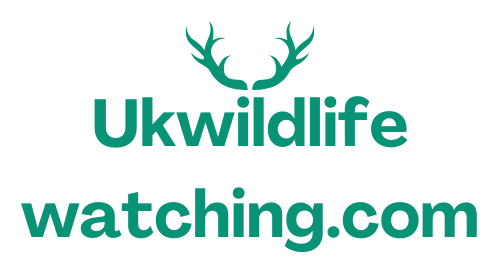Introduction
wildlife rehabilitator near me: Have you ever seen an injured bird, stranded baby squirrel or orphaned rabbit and felt completely unsure of what to do? You’re not alone. Many people ask themselves, “Where can I find a wildlife rehabilitator near me?” when faced with situations like these. Wildlife rehabilitators are the unsung heroes who dedicate their lives to rescuing, rehabilitating and releasing injured or orphaned animals back into the wild. In this guide, we’ll tell you everything you need to know about finding a compassionate wildlife rehabilitator near you and how you can play a role in saving precious wildlife.
Why Finding a Wildlife Rehabilitator Is Important
Wildlife rehabilitators play a vital role in preserving our ecosystems and ensuring the survival of countless species. Every year, thousands of animals are injured due to human activities, natural disasters or disease. Without proper care, these animals often face a terrible fate. Wildlife rehabilitators step in to provide these animals with the medical care, nutrition, and shelter they need to recover.
But it’s not just about saving individual animals—it’s about maintaining the delicate balance of our ecosystem. Every creature, from the smallest songbird to the largest deer, plays a vital role in the environment. By helping injured or orphaned animals, wildlife rehabilitators contribute to the health and sustainability of our natural world.
If you’ve ever wondered, “Where can I find a wildlife rehabilitator near me?” you’re already taking the first step toward making a difference. Let’s learn how you can find these compassionate experts.
How to Find a Wildlife Rehabilitator Near You
Finding a wildlife rehabilitator isn’t too difficult. Here are some practical steps to help you find one quickly:
Search Online Directories
The easiest way to find a wildlife rehabilitator is to use online directories. Websites like the National Wildlife Rehabilitators Association (NWRA) and Animal Help Now allow you to search for licensed rehabilitators in your area. Simply enter your location, and you’ll get a list of nearby professionals who can help.
Contact local animal shelters or veterinarians
Many animal shelters and veterinarians have relationships with wildlife rehabilitators. Even if they don’t provide wildlife rehabilitation services themselves, they can often point you in the right direction. Don’t hesitate to call and ask for recommendations.
Use Google Maps
A quick search of “wildlife rehabilitators near me” on Google Maps can yield instant results. This tool not only shows you nearby options but also provides reviews and contact information, making it easier to choose a reputable professional.
Contact local wildlife organizations
Organizations like the Audubon Society, local nature centers, or wildlife conservation groups often have relationships with rehabilitators. They can provide valuable guidance and may even volunteer to assist you.
By following these steps, you will be well on your way to finding a compassionate wildlife rehabilitator who can help.
What to Look for in a Wildlife Rehabilitator
Not all wildlife rehabilitators are the same, so it is important to choose one who is qualified and trustworthy. Here are some things to consider:
Licensing and Experience: Make sure the rehabilitator is licensed by the state or federal government. This guarantees that they have the necessary training and expertise to care for wildlife.
Compassion and Caring: Look for reviews or testimonials from other people who have used their services. A good rehabilitator will prioritize the well-being of the animals above everything else.
Availability: Wildlife emergencies can happen at any time, so it is important to find a rehabilitator who can respond promptly.
Taking the time to choose the right professional will ensure the best possible outcome for the animal in need.
How to help injured or orphaned wildlife before contacting a rehabilitator
While waiting to contact a wildlife rehabilitator, there are steps you can take to help the animal:
Keep the animal safe: Keep the animal in a quiet, dark, and warm container. Don’t handle it too much, as this can cause additional stress.
Don’t feed the animal: Feeding an injured or orphaned animal the wrong food can do more harm than good. Wait for professional guidance.
Contact a rehabilitator immediately: Time is precious, so contact a rehabilitator as soon as possible.
If you don’t know what to do, consider investing in a wildlife rescue kit. These kits often include essential items like gloves, blankets, and carriers, making it easier to handle animals safely.
Success Stories: How Wildlife Rehabilitators Make a Difference
Nothing demonstrates the importance of wildlife rehabilitators better than real-life success stories. Take, for example, the story of a tiny fox tangled in a fence. Thanks to the quick action of a compassionate rehabilitator, the fox was freed, treated for its injuries, and eventually released back into the wild. Stories like these remind us of what an incredible impact these professionals make on both animals and the environment.
Frequently Asked Questions About Wildlife Rehabilitation
How do I know if an animal needs help?
If an animal appears injured, sick, or orphaned (e.g., a baby bird alone on the ground), it may need assistance. However, always watch from a distance first, as some animals may not actually need help.
What should I do if I can’t find a wildlife rehabilitator near me?
If you are unable to locate a rehabilitator, contact a local animal control, veterinarian, or wildlife organization for guidance.
Can I volunteer at a wildlife rehabilitation center?
Many centers welcome volunteers! Contact your local rehabilitator to inquire about opportunities.
Conclusion
Finding a compassionate wildlife rehabilitator near you is easier than you might think. By following the steps in this guide, you can ensure that injured or orphaned animals get the care they need. Remember, every small action you take can make a big difference in the lives of wildlife.
So, the next time you ask yourself, “Where can I find a wildlife rehabilitator near me?” you’ll know what to do. Start your search today and become a hero for wildlife in need!
